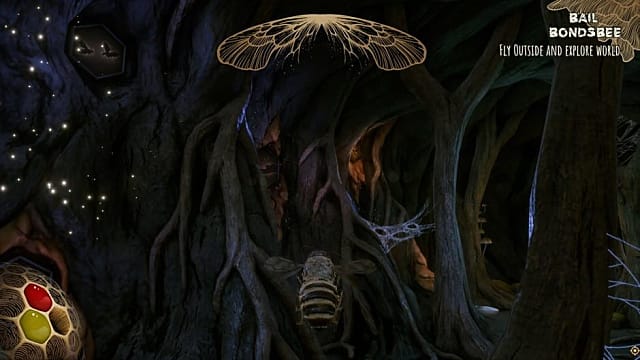While the latter is a bugs-as-features physics playground, the former, from Poland’s Varsav Game Studios, is not nearly so dismissive of itself. It’s still a lighthearted game, but it uses that quality in a way much more suited to the game’s endgame purpose.
At its heart, Bee Sim is as much a learning experience as it is a video game. It performs both roles well enough that it should be used in schools.
By now, you’re probably familiar with the meme about bees dying at an alarming rate. I still recall when I first saw it online. What you hopefully also know is that it’s based on a real and growing problem. Bees really are dying at an alarming rate. It’s made more problematic due to our inability to pinpoint exactly why it’s happening.
Lots of theories have been proposed — pesticides, climate change, viruses —and though each has its respective proponents, the most recent science, according to source-heavy podcast Science Vs, says the most likely answer is that it’s a combination of all these things.
Knowing that, Bee Simulator impressed me right away. The opening cinematic reminds players just how crucial bees are to our world, and when Bee Sim touches on why bees may be fading away, it alludes to this same three-pronged dilemma.
It doesn’t hunker down and pick a side. The game’s only agenda is obviously to educate players, not to recruit them.
That told me Bee Simulator is well-versed in the important environmental topic it’s focused on, and from then on, I was invested to see what else Bee Sim could teach players.
The game’s setup is, in a word, cute. You play a bee whom you can name — I stuck with the suggested autofill of Beescuit. Ahem.
It’s Beescuit’s job to learn how to pollinate, waggle dance, and race across a park meant to mirror Central Park in New York. What I didn’t expect is that the bees would be fully voiced and personable.
This strange approach gives the subject a Pixar-like appeal to it, as though Bee Sim is a game meant to instruct and attract kids first and foremost. In that respect, the game totally nails its mission.
Bees chat, and joke, and you’ll take plenty of orders the same way every protagonist does in any game. The difference in Bee Sim is that you’re a winged insect for nearly the first time ever in video games.
It feels like the kind of game that hardly exists today, but alongside its rather innocent offering to young gamers who maybe already moved onto Fortnite, it also owns something unique: a teachable moment.
Real-life bee roles are turned into silly mini-games and mechanics that put players literally in the mind of a worker bee. Bee Sim teaches the hierarchical nature of a bee colony.
The game explains what pollinating means and why it’s vital to the world’s food supply. And it even lets players see how bees may interact or clash with other creatures, some of them their size, others much bigger.
In its four- to five-hour story mode, Bee Sim feels more like something you’d play in school where fun smuggles in the learning. When I’m not writing, I teach at an after-school program at my son’s school, and Bee Simulator is the kind of game around which I’d want to build a curriculum. In fact, I’m even considering it for the spring term.
The gameplay is charmingly goofy, and the developers probably know that, but it’s also not self-deprecating. Its pleasant and playful tone is inviting, especially to younger players. While you’re having fun, Bee Simulator wants you to think about what’s really happening, in the game and in our world alike.
Bee Simulator is a unique game that feels like it came to life almost impossibly. Its scope of edu-tainment would, on one hand, seem dated in an industry that no longer caters games just to kids.
It should be the case that it’s now at an insurmountable disadvantage when the competition for timeshare is stuff like Rocket League, Fortnite, and sometimes even Call of Duty (trust me, they tell me).
But Bee Simulator possesses an innate appeal that still speaks to kids thanks to a family-movie-like ethos complete with its serious commitment to instructing positive change and awareness in its players.
Bees are important, and we should care that they’re dying off, especially as we seem to be partly to blame. Video games are now the biggest entertainment industry in the world, and I love all sorts of games. But something like Bee Simulator is quite rare today. Even more rarely is this sort of thing done well.
I hope Bee Sim inspires more games like it, more games that use this industry’s enormous influence for good. Taking care of our world could use some more positive buzz.

